The Basics of Delta THC
Several variations of THC, called chemical analogs, work to distinguish various types of THC from one another. These unique THC compounds are all slightly different. These differences impact how the human body’s endocannabinoid system reacts to them. Some analogs are federally illegal, while another active ingredient may be allowed.
3 Types of Cannabis plants
Indica
Indica plants produce airy, more developed buds than Sativa. It originates from the Kush region near Afghanistan and is from a colder, mountainous climate. Indica leaves are shorter and bushy and have dark, full leaves, and clumpy buds. It has higher THC and lower CBD and is known for its calming effects and relaxing high.
Sativa
Sativa weed plants are from the warmer climates, producing tall, long leaves and dense, thick buds during the flowering stage. It has more CBD cannabinoids and less THC and is the perfect strain to consume in the morning due to its energetic, cerebral high, and euphoric impact.
Hemp
Industrial hemp is legal in the US, thanks to the Farm Bill of 2018. Hemp has a similar chemical makeup in looks to Indica and Sativa, but it doesn’t produce much THC causing little to no psychoactive effects or a positive drug test. Hemp products are used in the textile industry and for the production of alternative cannabinoids, such as CBD and CBG. The legal limit of THC for hemp-derived products is 0.03 percent.
What is a Cannabinoid?
Cannabinoids are found in the cannabis plant and are produced naturally by the human body. We have an endocannabinoid system (ECS) that internally produces cannabinoids. These compounds are essential to maintaining internal balance through many different body systems.
Cannabinoids interact with our ECS to help maintain functional balance through messenger molecules and receptors. Their beneficial effects can help to regulate sleep, energy, cardiovascular function, reproduction, relieve stress, manage anxiety, chronic pain relief, motivation, appetite, and digestion.
What is Delta 10
Delta-10 is a cannabinoid found in trace amounts in the cannabis plant. Like delta 9 THC, these cannabinoids interact with the ECS so it can get you moderately high, but it is much less potent. It is better compared to Delta-8 THC in its effects.
Delta-10 is commonly processed from hemp-derived CBD, as is delta-8. Because hemp is federally legal in America, delta-10 is considered legal in all 50 states. However, specific state laws have outlawed delta 8- and delta-10 independently.
Physical Effects
Delta 10 THC tends to have mild relaxing, calming qualities that are mainly body-centered. Many people use it to feel comfort and stress relief at the end of a long day or when feeling anxious.
Psychoactive effects
Delta 10 is psychoactive but significantly less potent than regular THC and even milder than delta 8 THC. Its uplifting effects make it popular for people who want to get high and get things done; the experience is often reported to feel creative, focused, and energetic.
Health Benefits
- Protects the Brain- Delta 10 THC can aid in memory-related issues, cognition, and neuroplasticity.
- Stimulate Appetite- Delta 10 THC helps stimulate an individual’s appetite due to its interaction with the body’s endocannabinoid system.
- Increase Energy – Delta 10 THC offers a Sativa high sensation with a boost in energy and motivation.
- Relieve Pain- Cannabinoids possess anti-inflammatory properties to help alleviate the chronic pain you experience.
- Stress Control – Delta 10 THC affects the limbic system and thus can help in dealing with conditions like anxiety, post-traumatic stress disorder, and depression.
Adverse Risks
The most common side effects of delta 10 THC include:
- Dry mouth
- Red eyes
- Increased appetite
- Over-active mind
What is Delta 9
Delta 9 THC is a significant cannabinoid found in abundance in cannabis. Extraction is usually relatively cheap and straightforward as a result. It is derived explicitly from marijuana plants.
When someone talks about THC, they are more than likely referring to Delta-9 as it is considered “regular THC.” It is a cannabinoid molecule in cannabis that is the primary psychoactive ingredient within the plant.
Physical Effects
Many weed users have expressed that delta-9 THC products have helped improve sleep quality, treat body aches, improve appetite, decrease physical discomfort, etc. Delta 9 is commonly used for its potential medical benefits, reducing symptoms of anxiety and PTSD and helping people combat symptoms of glaucoma, seizures, and other chronic conditions.
Psychoactive effects
Unlike many other cannabinoids, the THC cannabinoid interacts with the CB1 receptors located in the human brain. This area is responsible for many mental processes including decision-making and retaining memories.
This powerful compound derived from cannabis plants is said to provide effects such as excitement, euphoria, focus, calm, and more. The results can be intense for some cannabis users, while others enjoy certain strains’ relaxing qualities or creativity boost.
Public Health Benefits
Marijuana with THC has been used for medicinal purposes for many centuries. However, scientific research on its use to alleviate and treat illness is still relatively recent due to federal prohibitions.
Some of the health conditions that THC may help include:
- Anxiety
- Depression
- Glaucoma
- Inflammation
- Insomnia
- Irritable/Inflammatory bowel syndrome
- Migraines
- Multiple sclerosis
- Muscle spasticity
- Nausea and Vomiting
- Opioid use disorder
- Chronic Pain
- Low appetite
- Post-traumatic stress disorder
- Seizures and Epilepsy
- HIV/AIDS
Safety Concerns
- Altered perception of time
- Increased appetite
- coughing fits
- anxiety and paranoia
- chest or lung discomfort
- hallucinations
- cold sweats
- Coordination issues
What is Delta 8
Unlike CBD, delta-8 THC produces euphoric effects similar to but milder than delta-9 THC, the well-known psychoactive compound in cannabis. Delta-8-THC occurs naturally and is an isomer of delta-9 THC, and the difference between the two molecules is simply the location of a carbon double bond.
Delta-8 THC’s popularity began when an oversupply of CBD extracted from hemp grown in the United States caused the price of CBD to fall dramatically. Producers began looking for ways to convert CBD into delta-8 THC. The cannabis industry marketed the resulting products to those looking for pain relief and stress management, those not looking for an intense high, and those living in illegal areas.
Physical Effects
Similar to delta-9 THC, delta-8 at a normal dosage level can provide feelings of body relaxation and pain relief, but with milder psychoactive effects. For people who don’t want to experience a high, the lower potency of Delta-8 THC may be beneficial. However, it will produce more mental effects than CBD oil and other CBD products.
Psychoactive effects
There’s a lack of research and empirical evidence regarding Delta-8’s impact on your overall mental health. Many survey participants recently reported that they use Delta-8 along with their prescription medications (with medical authorization) to help with depression and substance use disorder symptoms.
Potential Benefits
Users say Delta-8 THC can help to:
- Reduce nausea
- Boost appetite
- Ease chronic pain
- Boost mental health
Adverse Effects
With little to no regulatory oversight and limited lab testing on a federal level, many products are not pure delta-8 THC. These products typically contain a high percentage of delta-8 THC and delta-9 and unknown reaction by-products.
Delta 8 THC can produce side effects such as:
- red eyes
- dry mouth
- rapid heart rate
- slow coordination and reaction time
- increased anxiety
- short term memory loss
Comparisons
The main distinction between the three delta THC molecules is their physical and mental effects. Scientific research can distinguish one from another under a microscope due to genetic composition. Still, most cannabis consumers will be able to spot them upon consumption by the differences in how each makes them feel.
A mild, relaxing effect is the most noticeable effect of Delta-8 THC. On the other hand, a feeling of a moderate euphoric high is sure to be an effect equated to Delta-9 THC. And if you were to feel more joyful than usual, you would more than likely be experiencing the subtle impact of Delta-10 THC.
Delta 10 vs. CBD
The main difference between CBD and delta 10 THC is how they interact with the cannabinoid receptors in the human body’s ECS. Delta 10 activates them while CBD merely regulates or balances them, making our natural endocannabinoids more efficient at doing their job.
What are the effects of Delta 10 THC compared to Delta 8 and Delta 9?
Delta 10 THC has its own unique effects compared to Delta 8 and Delta 9. The key differences between thc lie in their potency and psychoactive properties. Delta 10 is believed to be less potent and less psychoactive than its counterparts, making it a potentially milder option for consumers.
Delta 10 THC Research
Like delta-8, delta-10 is a minor cannabinoid that exists in small amounts in cannabis and hemp plants, per ACS Laboratory, a Florida testing lab for cannabis, hemp, and CBD.
A 1980’s study on pigeons conducted by cannabis researcher Raphael Mechoulam studied the effects of delta-10 compared to delta-9 on pigeons. The results found that delta-10 may have some psychoactive effects, but they are much less potent than regular THC.
Top Delta 10 THC Strains and Products
- Delta Extrax
- Hyper
- Hometown Hero
- Mellow Fellow
- Extrax Tropical
- 3Chi vape cartridges
- Botany Farms
- Urb flower
- Elixir LA
- CBD Genesis
Wrapping it Up
With delta-8 THC’s recent popularity in the market today, Delta-10 was welcomed by many because it brings on a smoother and less euphoric high than delta-9 and other THC compounds. With the emergence of lower potency delta-10, people can experience milder effects without giving up the therapeutic benefits. The key is to know your specific needs and to experiment to find the best cannabis products for your lifestyle.

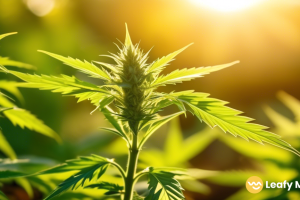
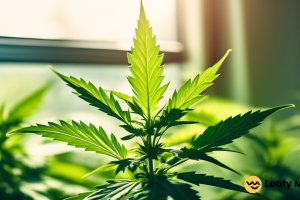
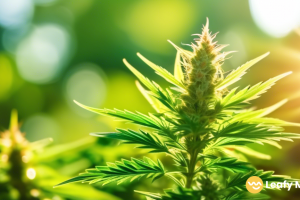




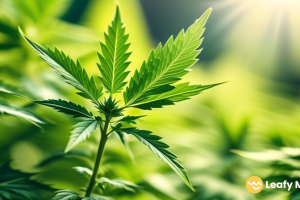
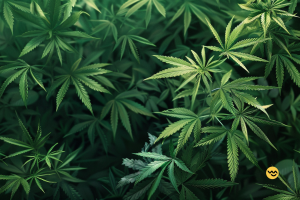
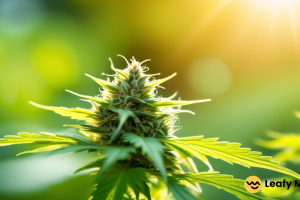
Leave a Reply